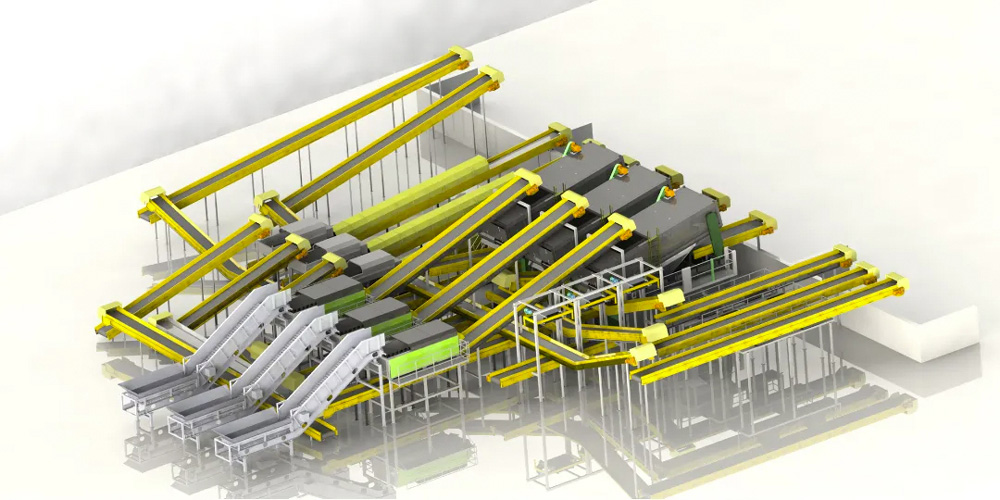 Time:2025-03-26
Time:2025-03-26
 Source:青绿环境
Source:青绿环境
Waste sorting equipment is an indispensable part of modern waste management systems, playing a crucial role in improving waste processing efficiency, promoting resource recycling, and protecting the environment. Here is a detailed introduction to waste sorting equipment:

1. Magnetic Separators
These devices rely on magnetic forces to attract ferromagnetic materials such as iron, cobalt, and nickel. They are commonly used to separate metal items from mixed waste, enhancing metal recycling rates.
2. Color Sorters
Utilizing color differences, these machines use optical systems to identify and separate materials based on color. They can distinguish between different colored plastic bottles, for example, by blowing away materials that do not match the set color range.
3. Air Separators
These separators use airflow to separate materials based on density and particle size. They can effectively separate lighter materials like plastic films and paper from heavier ones like metals and stones.
4. Photoelectric Sorters
Combining light sensors and image recognition technology, these sorters precisely separate materials based on their optical properties. They can handle complex shapes and a variety of materials.
5. Intelligent Sorting Robots
These robots use parallel mechanisms to quickly sort and remove impurities or separate materials. They offer high - speed sorting capabilities and can be equipped with various structural components to handle different materials.
6. Intelligent Optical Sorters
These machines use dense array directional airflow for high - speed separation. They have low air consumption, fast belt speeds, and high processing capacities, making them suitable for sorting large - volume items.
Applications of Waste Sorting Equipment
1. Municipal Solid Waste Management
Waste sorting equipment is used to classify and sort various types of waste generated in daily life, improving resource recovery rates and processing efficiency. For example, recyclables like plastics, paper, and metals are sorted for reprocessing, while organic waste like kitchen scraps is separated for composting or anaerobic digestion.
2. Construction Waste Management
Waste sorting equipment is used to sort and recycle materials such as concrete, brick fragments, wood, and steel generated during construction. For example, wood can be reused as reclaimed timber, and steel can be recycled for steelmaking.
3. Industrial Waste Management
Waste sorting equipment is used to classify and process various types of waste generated in industrial production. For example, in electronic waste processing, magnetic separators can recover ferromagnetic metals, and color sorters can separate different colored plastic components.
4. Recycling of Scrap Materials
Waste sorting equipment is used to dismantle and sort scrap appliances, furniture, vehicles, and other items to recover valuable materials. For example, engines, motors, and tires can be sorted from scrap vehicles for remanufacturing or recycling.
Waste sorting equipment comes in a variety of types with different working principles and wide - ranging applications. It is of great significance for improving waste - handling efficiency and promoting resource recycling.













 Prev
Prev











